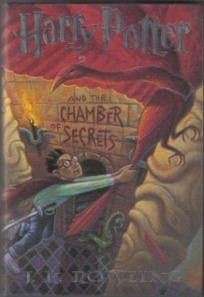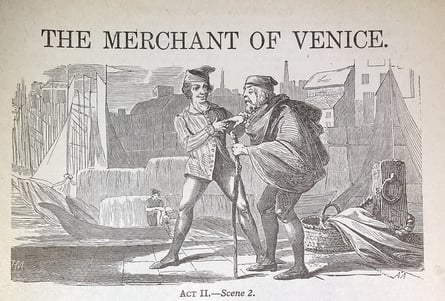Happy Father’s Day! One day a year dads are officially recognized for the endless amounts of work they do throughout the year. It is a rare day indeed when fathers are properly appreciated. To show our appreciation, we prepared a second list of literary fathers who we love and who we love to hate. To see our previous list, click here.
Portia’s father
While never appearing on stage during Shakespeare’s Merchant of Venice, Portia’s father still cares for her after his death. Since he is not present to help find a suitable suitor for his daughter, he sets up a series of tests to weed out those with undesirable traits. His plan works well enough that Portia is saved from suitors who are vain and greedy. Portia’s obvious intelligence seen throughout the rest of the play also speaks to her father’s support of her learning, despite women lacking access to consistent educational opportunities and the expectation for women to be accomplished rather than intelligent.
Bilbo Baggins
Despite not being Frodo’s father, Bilbo Baggins from The Lord of the Rings steps into the role of Frodo’s father after his parents’ deaths. Bilbo provided the love and support Frodo needed to help him accept and grow into the hobbit who helped save the world, and without Bilbo’s influence, Frodo would not have been as prepared for the journey to destroy The One Ring. Granted, Frodo was left to clean up the mess of The Ring left behind by Bilbo when he happily ran off to adventure once again in his old age, but that is a rather common issue faced by literary fathers and should be almost expected by readers.
Carson Drew
Leaving the fact that he lets his sixteen-year-old daughter traipse around solving dangerous mysteries aside, the unconditional love and support Carson Drew shows Nancy Drew, especially after her mother’s death, helped her to grow into the original super sleuth. He is also capable of showing the sometimes-rare ability of being a responsible parent in a literary work. When Nancy does something exceedingly dangerous, Carson is able to help rein her in and keep her safe from others and herself.
Lucius Malfoy
 The Harry Potter series produced many loved and hated characters. The Malfoy family falls decidedly in the hate-but-still-redeemable category. Draco Malfoy’s “My father will hear about this” became a defining feature of his character. He went to great lengths to protect his family, and they did the same for him.
The Harry Potter series produced many loved and hated characters. The Malfoy family falls decidedly in the hate-but-still-redeemable category. Draco Malfoy’s “My father will hear about this” became a defining feature of his character. He went to great lengths to protect his family, and they did the same for him.
Lucius Malfoy, the patriarch of the family, is, undeniably, a villain. He gives a diary to a little girl that causes her to be possessed and brings harm to other children attending Hogwarts; he routinely participates in Death Eater activities, including killing and torturing; and he firmly believes in superiority based on blood purity. Yet, in the end, he is willing to abandon all of his Death Eater duties to protect his family. Despite being an evil man, he tried his best and cared for Draco, and sometimes that is all it takes to make a character redeemable.
Zeus
What could be cooler than having the King of the gods as a dad? A lot of things, really. Large amounts of baggage tend to come when one’s father is Zeus. His jealous wife, Hera, usually punished the mother or children in some way, for example, cursing the mother to prevent her from giving birth. Even reaching adulthood was no guarantee of safety from Hera or Zeus. Many demigod children were sent on long, dangerous quests ending with a tragic death or a triumphant return to Olympus and acknowledgement from Zeus. All in all, it is far preferable to have a normal, mortal dad rather than the lightening-wielding King of the gods.









